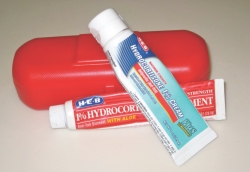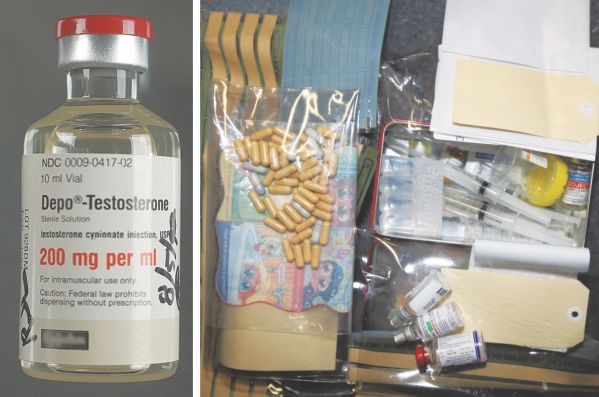| Home - Back Issues - The Team - Contact Us |
 |
| Volume 11 |Issue 09| March 02, 2012 | |
|
|
Health Killer or Saviour? ANIKA HOSSAIN
Whenever there is talk about steroids, we think of drugs that athletes take to become bigger, faster and stronger—illegally, which eventually leads to irreversible damage to their minds and bodies. This partly exaggerated function of steroids is widely publicised by the media, giving steroids a bad reputation. “We call steroids a life saving drug,” says general practitioner, Dr B Munim, “Patients suffering from Addison's disease, asthma, rheumatoid arthritis, systemic lupus erythematosus and many other autoimmune diseases depend on steroids to keep them going on a daily basis.” According to Dr Munim, medication for these illnesses are either pure steroids or steroids mixed with other drugs. “If taken in the right doses, they can help people live longer. However, every drug has its side effects and sometimes those caused by steroids can be extremely harmful. That is why steroids are prescribed, sometimes as a last resort for those who have life threatening illnesses.” Steroids can be taken in many forms. Some are consumed orally and come in the form of tablets, capsules or syrups. These help to treat inflammation and pain associated with chronic illnesses such as arthritis and lupus. They can also be used through inhalers and intranasal sprays, which help to control inflammation caused by nasal allergies and asthma. Some steroids are produced as creams, ointments and roll-ons and these help cure many types of skin conditions. Intravenous steroids can treat pain and inflammations caused by tendonitis.
“In the short run, when orally taken steroids need to be consumed with a full stomach. If this is not done, it can cause gastric ulcer,” says Dr Munim. Short-term effects of steroids can last for only a few days at a time and can include an increase in appetite resulting in short term weight gain, insomnia, changes in behaviour and mood swings, flushed complexion and water retention, high blood pressure for those who are prone to it and increase in blood sugar for those suffering from diabetes mellitus, glaucoma or increased pressure in the eyes. These effects usually stop when one stops taking steroids and are caused mostly by oral steroids. However, for conditions like asthma, long-term use is essential for a person to stay alive. “Long-term side effects may include osteoporosis, hormonal change and renal problems,” says Dr Munim. Long-term effects of oral steroids include cataracts, high blood sugar which can worsen diabetes, increased risk of infections, bone weakness which can cause fractures easily, irregularities in the menstrual cycle, suppressed adrenal gland hormone production, thinner skin which is bruised easily and is slower to heal, acid reflux, heart diseases, cataracts and myopathy which is a muscle disorder.
In case of inhaled steroids, some of it may be deposited in your mouth and throat instead of reaching the lungs, causing dry mouth, sore throat, coughing and hoarseness. Topical steroids can also cause thinness in the skin leading to acne and lesions. Injected steroids may cause side effects near the site of the injection such as infection, pain, shrinking of the soft tissue and loss of skin colour. “Usually, doctors prescribe steroids very carefully because of the negative side effects,” says Dr Munim, “However in our country all drugs are over the counter so a prescription, means nothing. There are many unqualified people posing as doctors or healers who prescribe or recommend steroids carelessly for such conditions as minor aches and pains. In the short run, they work well, so the patient goes back for more, without consulting their doctors. Sometimes, patients will ask the opinion of a pharmacist and trust them completely without realising how dangerous that is,” he opines. Steroids are a life saving drug, but they have the potential to weaken the immune system, which can lead to degenerative diseases that can eventually cause death. “The positives however, out weigh the negative,” says Dr Munim, “If it saved a person in the short run, they will choose to take it and deal with whatever may come. One must remember to consult a doctor to ascertain the dosage that is correct for them, and take no more than necessary. You may not be able to see the effects in the short run, therefore precautions are absolutely necessary,” he tells us.
Copyright
(R) thedailystar.net 2012 |


